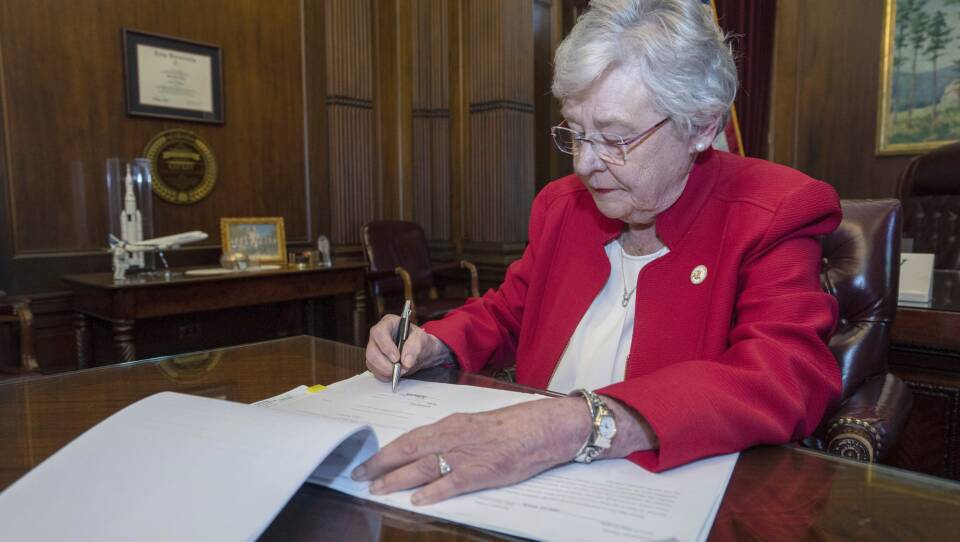If you’re angry about the Alabama abortion ban, you can do something about it.
First, understand the problem. Only by doing this can we fix it. Here, the problem is a culture that thinks it’s OK to control other people’s bodies and lives. You should easily recognize this problem because it’s an age-old issue, it’s systemic, and it goes by the jargony nouns of patriarchy and oppression.
This year, in response to the very real threat to abortion rights posed by the current makeup of justices on the Supreme Court, 10 states considered bills that would protect reproductive rights. Only one, New York, passed its bill into law. A second, Vermont, completed the first of three steps to amend its constitution to protect reproductive freedom.
By contrast, in the first four months of 2019, 11 other states considered bills that essentially eliminate a woman’s right to control what she can do with her body when she is faced with an unwanted pregnancy. Seven were approved and signed into law.
As of this writing, although abortion is still technically legal in all 50 states, 43, including Massachusetts, now have laws with tighter restrictions on access to abortion than allowed under the standard set by 1973’s landmark ruling in Roe v. Wade.
So who gets control under these laws? Police and prosecutors. That is unconscionable, and particularly so for women who become pregnant as a result of rape or incest. (Despite some anti-abortion lawmakers believing it’s impossible, over 16 percent of women who experience vaginal rape become pregnant.)
The bill that has everyone talking right now is the one passed by Alabama lawmakers this week and signed into law by Alabama Gov. Kay Ivey. It is the most restrictive and outrageous of all the anti-abortion laws passed thus far. It bans all abortions, does not provide exemptions for rape or incest, and would subject doctors who provide abortions to lifetime sentences.
During debate on the bill, Alabama State Sen. Linda Coleman-Madison disputed the claim that the measure was about life. “This bill is about control,” she said.
She’s right.
Proponents of these bills claim that they protect life. What they really do is control other people’s bodies, specifically those of people who can get pregnant. These bills exist on a spectrum that begins with dress codes in middle school, continues with endemic sexual violence, and ends with the elimination of autonomy when someone becomes pregnant and is forced to carry it to term.
The Supreme Court will have the ultimate say in whether any of these restrictive laws are ever implemented. But that doesn’t mean we are powerless in the meantime. As individuals and communities, we can promote public health initiatives to dismantle the patriarchy — which harms people of all genders — and the systematic ways that society tries to control groups of people with less power.
Once you're fully informed, you can take action. Support legislation that protects the right to choose. Here in Massachusetts, lawmakers are considering two bills that would do just that. The first is the Healthy Youth Act, which would require all school districts offering sexual health education to employ a curriculum that discusses consent, safe sexual activity, and healthy relationships “free of violence, coercion, and intimidation.” It would also require positive discussion and depictions of lesbian, gay, bisexual, transgender, queer, or questioning youth.
The second is the Roe Act, which would reform outdated state laws by removing medically inaccurate language from state statutes and abolishing medically unnecessary restrictions on abortions.
Both measures place trust in individuals by granting control of bodies where it should be: with each one of us.
Gina Scaramella is executive director of the Boston Area Rape Crisis Center.




